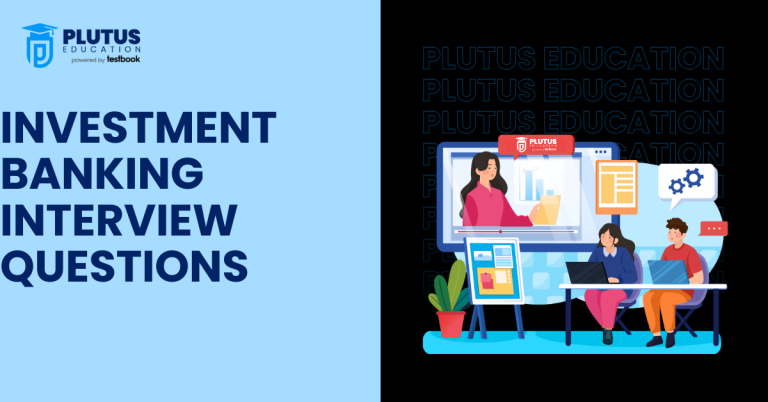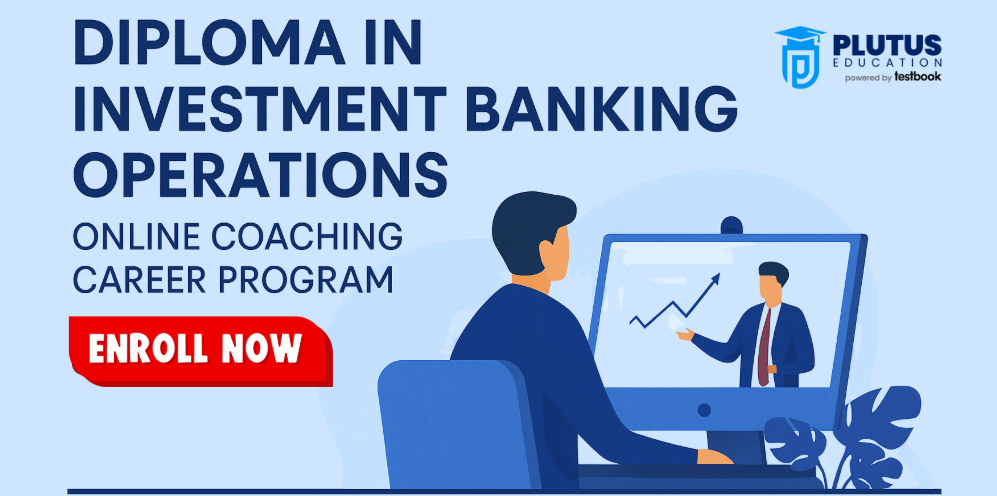If you want to work in finance, you must get ready for investment banking interview questions. These questions test your knowledge, thinking speed, and confidence. You may face questions about accounting, financial modeling, market trends, and personal skills. Investment banking interviews are not easy. They check both your theory and practical skills. But with good preparation and practice, you can answer well and get the job. Interviewers want to see how you think, how you explain numbers, and how you fit into a team. They don’t just want book knowledge. They want smart, clear, and confident people.
What to Expect in an Investment Banking Interview?
Investment banking interviews follow a set format. They usually start with questions about you. Then they move to finance topics. The interviewers want to know your background, how much you know, and how you solve problems.
These interviews test your speed, logic, and basic financial knowledge. Many also include a case study or modeling task. You may need to explain a deal, value a company, or compare stocks. You must practice before you go in.
You will face different types of questions. Each tests a skill or knowledge area.
- Behavioral Questions: These ask about your past actions. For example, “Tell me about a time you solved a tough problem.”
- Technical Questions: These test accounting, valuation, Excel, and financial modeling. For example, “Walk me through a DCF.”
- Market Awareness Questions: These check if you follow finance news. Example: “What’s the Sensex today? Why is it up or down?”
- Situational Questions: These ask how you would act in a certain role. Example: “If two companies merge, what key points would you check?”
You must stay calm and think before answering. Interviewers want smart, honest, and sharp answers.
Top Behavioral Investment Banking Interview Questions
Behavioral questions help interviewers know you better. They want to see your work habits, communication skills, and how you handle pressure. These questions do not need formulas, but they need clear, honest stories.
Most of these questions start with “Tell me about a time…” or “Why do you want to…”. You must give real examples. Always use the STAR method – Situation, Task, Action, and Result – to structure your answers.
- Why do you want to work in investment banking?
Talk about your interest in finance, love for problem-solving, and how the fast pace of IB excites you. Mention how your skills fit the role.
| I have always been deeply interested in finance because of the way it shapes decisions in both business and policy. What excites me most about investment banking is the fast-paced, dynamic environment where every deal brings new challenges. I enjoy solving complex problems, analysing financial data, and working under pressure—qualities that are essential in IB. The idea of advising companies on mergers, acquisitions, or raising capital fascinates me, especially because these decisions have long-lasting impacts. I also thrive in high-intensity settings where collaboration and precision are crucial. My analytical mindset, strong work ethic, and ability to communicate effectively align well with the demands of this role. I’m confident that my skills, combined with my passion for finance, make me a strong fit for this career. |
- Tell me about a time you handled stress.
Share a school or project story. Show how you stayed calm, divided the task, and delivered results on time.
| During my final year of college, I had to submit a research project while also preparing for placement interviews. The pressure was intense because both tasks were equally important and time-sensitive. Instead of panicking, I created a clear plan by breaking the project into manageable parts and allocating daily goals. I dedicated early mornings to preparing for interviews and evenings to writing and editing the project. I also made time to regularly review progress and adjust priorities. By staying organised and focused, I was able to complete the project on time and also secure an internship. This experience taught me how to stay calm and manage time. wisely, and deliver results even when the stakes are high. |
- What is your greatest strength?
Pick one strong point like discipline, math skills, or teamwork. Give a real example where this helped you.
| One of my greatest strengths is discipline. I’m consistent, self-driven, and committed to following through on responsibilities without being reminded. For example, during a summer internship, I was responsible for tracking the performance of a portfolio of client accounts. Despite minimal supervision, I maintained accurate reports, flagged anomalies, and proactively suggested improvements in reporting formats. My team appreciated my reliability and attention to detail. This strength helps me stay organised and ensures I meet deadlines, especially in high-pressure environments like investment banking. |
- Tell me about a failure and what you learned.
Speak honestly. Choose a small failure, explain the mistake, and share what you changed after that.
| During a group project in my second year, I took on too many tasks myself because I thought it would be faster. However, I underestimated the workload and missed a key deadline. This impacted our final presentation and affected our team’s grade. I realised that delegation and communication are just as important as individual effort. Since then, I’ve made it a point to work collaboratively, distribute tasks based on each member’s strengths, and conduct regular check-ins. That failure taught me that leadership means trusting others and managing responsibilities efficiently. |
- Why should we hire you?
Show how your skills, attitude, and learning mindset match the company’s needs. Be positive and confident.
| You should hire me because I bring a mix of analytical ability, resilience, and a deep enthusiasm for finance. I have a strong foundation in financial principles, excellent problem-solving skills, and a proven ability to handle pressure and multitask effectively. Moreover, I’m a quick learner with a growth mindset—I’m always seeking feedback and looking for ways to improve. I understand that investment banking is demanding, but I am fully prepared to put in the time and effort it requires. My adaptability, discipline, and genuine interest in contributing to your firm’s success make me a valuable candidate for this role. |
Always keep answers short, honest, and full of action. Avoid repeating what’s in your resume.
Top Technical Investment Banking Interview Questions
Technical questions test your financial knowledge. You must know accounting, valuation, Excel formulas, and finance concepts. These questions check if you can handle real deals and client work. You must practice these topics before the interview. Use Excel, do case studies, and revise key formulas. Many companies ask these questions during the first round or technical test.
- Walk me through a DCF (Discounted Cash Flow).
Explain how you forecast free cash flows, choose a discount rate (usually WACC), and find present value. Then add terminal value and get the company value.
| Sure. A DCF is a valuation method used to estimate the value of a business based on its future cash flows. First, I project the company’s free cash flows for the next 5–10 years. These are calculated as operating income after tax, plus non-cash expenses like depreciation, minus capital expenditures and changes in working capital. Next, I choose a discount rate, usually the WACC—Weighted Average Cost of Capital. It reflects the company’s cost of equity and debt. I then discount each year’s free cash flow back to present value using the formula: FCF / (1 + WACC)^n After that, I calculate the Terminal Value to capture value beyond the forecast period. This can be done using the Gordon Growth Model or an exit multiple. Finally, I add the present values of the forecasted cash flows and the terminal value to get the enterprise value of the company. |
- What are the three main financial statements?
The income statement shows profit. The balance sheet shows assets and liabilities. The cash flow statement tracks money in and out.
| The three main financial statements are: Income Statement: It shows the company’s revenue, expenses, and net profit over a specific time. It helps assess profitability. Balance Sheet: It gives a snapshot of the company’s financial position at a specific point. It includes assets, liabilities, and equity. Cash Flow Statement: It tracks cash coming in and going out, divided into operating, investing, and financing activities. It shows the company’s liquidity and cash health. |
- How does depreciation affect financial statements?
Depreciation lowers profit on the income statement. It reduces asset value on the balance sheet but adds back cash on the cash flow statement.
| Depreciation affects all three statements:On the income statement, it’s recorded as an expense, reducing taxable income and net profit. On the balance sheet, it reduces the value of assets through accumulated depreciation. On the cash flow statement, it’s a non-cash expense, so it’s added back to net income in the operating cash flow section. So, while it reduces accounting profit, it doesn’t affect actual cash. |
- What is working capital?
It is current assets minus current liabilities. It shows how much short-term money a company has to run daily work.
| Working capital is the difference between a company’s current assets and current liabilities. Formula: Working Capital = Current Assets – Current Liabilities It shows how much liquidity a company has to run its day-to-day operations. Positive working capital means the company can cover short-term obligations, while negative working capital may suggest financial stress. |
- What is enterprise value?
It is the total company value. Formula: Market cap + debt – cash. It shows what it would cost to buy the whole firm.
| Enterprise Value is the total value of a company, including debt. It represents what it would cost to acquire the business entirely. Formula: EV = Market Capitalization + Debt – Cash We add debt because the buyer has to assume it, and we subtract cash because the buyer gets it post-acquisition. EV gives a better picture than market cap, especially for comparing companies with different capital structures. |
You must explain answers slowly and clearly. Use simple words and show that you understand the topic well.
Valuation and Financial Modeling Questions
These are very important parts of investment banking. You must know how to value a company and build financial models. These questions test both your theory and how well you can apply it.
Interviewers often ask about DCF, multiples, and LBO models. You don’t need to build full models in the interview, but you must explain the steps.
- How do you value a company?
| There are three main ways to value a company: Discounted Cash Flow (DCF): Projects the company’s future free cash flows and discounts them back to present value using WACC. This method is based on intrinsic value. Comparable Company Analysis: Uses valuation multiples like EV/EBITDA or P/E from peer companies to estimate value. It’s market-based and reflects current investor sentiment. Precedent Transactions: Looks at prices paid in past M&A deals for similar companies. It often includes a control premium and reflects actual acquisition prices. Each method gives a value range, and analysts typically triangulate all three to decide on a final valuation. |
- Which method gives the highest value?
| Precedent transactions usually give the highest valuation. This is because acquirers often pay a premium to gain control of the company, access synergies, or outbid other buyers. In contrast, DCF tends to be more conservative as it’s based on projected cash flows, and comparables reflect current market conditions without premiums. |
- What is a good EBITDA multiple?
| A good EBITDA multiple depends entirely on the industry and market conditions: Technology or high-growth sectors: 15–20x or more Manufacturing or utilities: 5–10x is more common Other factors include the company’s size, growth rate, profitability, risk profile, and whether it’s public or private. The multiple should always be compared against industry peers. |
- What happens to valuation if interest rates rise?
| When interest rates rise, several things happen: WACC increases: Since cost of debt and equity rise, the discount rate in DCF increases. DCF valuation decreases: Future cash flows are discounted more heavily, lowering present value. Cost of capital rises: Making it more expensive for companies to borrow and invest, which can also reduce growth assumptions. Overall, rising interest rates typically lower company valuations, especially for long-duration cash flow businesses. |
- What is a sensitivity table in Excel?
| A sensitivity table shows how the output of a financial model—like company valuation—changes based on varying key inputs.For example, in a DCF, you might test how changes in: WACC Terminal growth rate Revenue growth affect the final valuation. It helps analysts and decision-makers understand the range of possible outcomes and the model’s dependence on key assumptions. It’s usually built using Excel’s Data Table feature. |
These questions are common in analyst-level interviews. Practice real models to answer confidently.
Market and Current Affairs Questions
Interviewers want to know if you follow the market. You must read business news every day. This helps you answer questions about recent IPOs, mergers, or global market changes.
You don’t need to know everything, but you must talk about key trends in the stock market, economy, or industry.
- What are the Sensex and Nifty levels today?
Always check this before your interview. Know the 1-week and 1-month trend too.
| As of today, the BSE Sensex is trading around 82,600, and the Nifty 50 is close to 25,200. Over the past week, both indices have remained relatively flat with minor fluctuations, driven by global cues, foreign institutional investor (FII) flows, and Q1 earnings results. In the past month, the indices have shown resilience despite volatility in global markets, especially around U.S. Fed rate expectations. Being aware of these trends shows that I’m up-to-date with market sentiment and macroeconomic factors affecting Indian equities. |
- Name one recent IPO in India.
Give company name, issue size, and if it was successful.
| A recent notable IPO was that of HDB Financial Services, a subsidiary of HDFC Bank. The company launched its IPO in June 2025, aiming to raise approximately ₹12,000 crore (around $1.5 billion). The IPO was highly successful—it was oversubscribed over 16 times, reflecting strong demand from institutional and retail investors. Its strong fundamentals, brand backing, and presence in the NBFC space made it an attractive offering. |
- What are current interest rates in India?
Know the repo rate, inflation rate, and recent RBI announcements.
| As of now: The RBI Repo Rate is 5.50%, after a recent 50 basis points cut by the Reserve Bank of India. The Cash Reserve Ratio (CRR) was also reduced by 100 basis points to 3%. Retail inflation (CPI) is relatively under control, remaining within the RBI’s target band of 4% ± 2%. These moves indicate an accommodative stance by the RBI to support growth while keeping inflation stable. |
- Which sectors are doing well in the market?
Talk about IT, pharma, or FMCG. Give reasons like strong earnings or demand.
| Currently, sectors such as pharmaceuticals, auto, and FMCG are showing strong performance: Pharma is gaining due to consistent export growth, stable margins, and rising demand for generics. Auto stocks are up due to strong quarterly sales, especially in EV and passenger vehicle segments. FMCG companies have seen steady demand and benefited from rural recovery and input cost moderation. Although the IT sector has seen some correction due to global slowdown concerns, it remains fundamentally strong for the long term. |
- Tell me about a recent merger.
Mention the companies, deal size, and why the deal matters.
| One of the most significant recent mergers is Capgemini’s acquisition of WNS, an Indian business process management company. Deal Size: Approximately $3.3 billion. Why it matters: Capgemini aims to expand its AI-enabled outsourcing services. WNS brings over 65,000 employees and a broad client base to the table. The merger strengthens Capgemini’s delivery capabilities in India and enhances its positioning in digital transformation and analytics services. This deal reflects the growing strategic importance of Indian tech and service providers in global business transformation efforts. |
Smart Tips to Crack Investment Banking Interviews
Cracking an investment banking interview needs hard work and smart preparation. You must stay confident, speak clearly, and think fast. Below are some useful tips that help many students and professionals.
- Know Your Resume: Be ready to talk about every line on your resume. Interviewers may ask details.
- Practice Speaking: Talk in front of a mirror or with friends. This improves confidence and clarity.
- Revise Basics: Go back to accounting and finance books. Know formulas and concepts well.
- Follow Finance News: Read Economic Times, Bloomberg, or Moneycontrol daily. Stay updated.
- Take Mock Interviews: Join coaching, online mock tests, or ask mentors to take practice interviews.
- Stay Calm and Smile: Don’t panic if you don’t know one answer. Be honest and move to the next.
These small steps make a big difference. Practice daily and focus on clear, strong answers.
Investment Banking Interview Questions FAQs
1. How to prepare for an interview in investment banking?
To prepare for an investment banking interview, follow these steps:
- Understand the role: Know what an investment banker does, including financial modeling, valuations, and deal execution.
- Master technical skills: Learn accounting basics, financial ratios, Excel modeling, and DCF analysis.
- Stay updated: Read financial news daily, especially about mergers, acquisitions, and IPOs.
- Practice fit questions: Prepare answers for “Why investment banking?” and “Walk me through your resume.”
- Mock interviews: Practice with peers or mentors to gain confidence.
Tip: For Indian students, focus on core finance concepts from CA, CFA, or MBA coursework, and link them with global market examples.
2. What are the 4 pillars of investment banking?
The 4 pillars of investment banking are:
- Advisory services – Guiding clients in mergers, acquisitions, and restructuring.
- Capital raising – Helping companies raise funds through equity or debt.
- Sales and trading – Buying, selling, and managing securities for clients.
- Research and analysis – Providing market insights and valuation reports to support decisions.
Note: These pillars form the foundation of investment banking operations, and interviewers often check if you can relate your skills to them.
3. What are investment banking interview questions?
Common investment banking interview questions include:
- Technical: “Walk me through a DCF model,” “How do you value a company?”
- Behavioral: “Why do you want to work in investment banking?”
- Market-related: “What is your view on the current IPO market?”
- Brain teasers: To test problem-solving skills under pressure.
Advice: Use a structured approach – for technical answers, explain step-by-step; for behavioral, use the STAR (Situation, Task, Action, Result) method.
4. Is a 3.7 GPA good enough for investment banking?
Yes, a 3.7 GPA is considered excellent for investment banking. In India’s percentage terms, this often translates to 80% or higher.
- Many top investment banks look for candidates with a GPA of 3.5 or above.
- Combine strong academics with internships, networking, and relevant certifications like CFA or FRM to stand out.
5. What GPA for Goldman Sachs?
Goldman Sachs typically prefers candidates with a GPA of 3.6 or higher (around 78% in Indian grading). However:
Performance in case studies, technical tests, and interviews often outweighs pure GPA for final selection. Exceptional extracurriculars, leadership experience, and relevant internships can make up for a slightly lower GPA.



